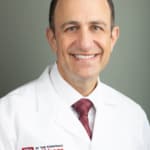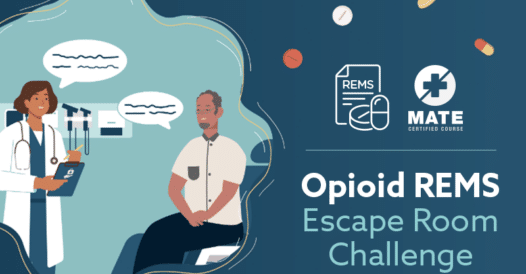Patients and health care professionals (HCPs) face additional challenges when the treatments prescribed for pain management (e.g., opioids) lead to substance use problems. HCPs must then re-evaluate treatment plans for acute, subacute, and chronic pain and encourage treatment for opioid use disorder (OUD). There are strategies available to HCPs to help identify patients at risk for OUD, most notably found in the 2022 CDC Guideline for Prescribing Opioids, which could help prevent OUD in patients through screening and identifying alternate treatments. For those patients who may present with concern for OUD, HCPs should be able to apply Diagnostic Statistical Manual of Mental Disorders’ (DSM)-5 criteria to properly diagnose OUD and work with patients to initiate effective treatment plans for OUD.
An interactive infographic from CME Outfitters entitled, Opioid Use Disorder: Identifying Patients At Risk and Developing Management Plans, consisting of three “escape-room” style activities, will be presented to show learners tools to identify patients at risk for OUD, diagnose patients with OUD, and develop treatment plans for the underlying pain as well as the subsequent OUD. The three rooms will model practice environments with challenges designed by a team of expert, interdisciplinary faculty that cover strategies from the 2022 CDC Guideline for Prescribing Opioids for screening and identifying patients at risk for OUD, as well as ways to diagnose and treat OUD.
















